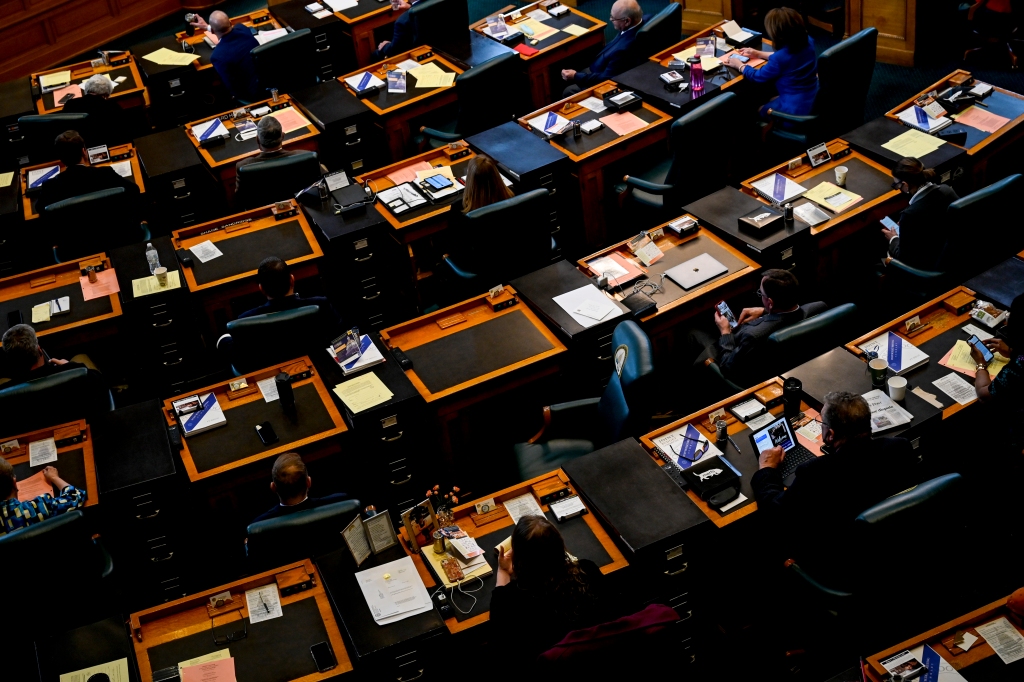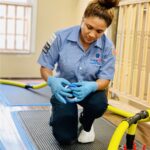
Colorado’s open meetings law must be clarified following lawsuit from Epps and Marshall
Last Updated on July 14, 2023 by Admin
[ad_1]

Colorado state Representatives Elisabeth Epps (D-Denver) and Bob Marshall (D-Highlands Ranch) filed a lawsuit against House leadership and the House itself alleging both legislative caucuses were meeting in violation of the Colorado open meeting law.
Taken at face value, the allegations are devastating. Among other things, Epps and Marshall allege the caucus meetings violated the law because they were held without any public notice; deliberately concealed those meetings from the public; and members conducted legislative business using encrypted group texts.
Conflicts between rank-and-file members and legislative leadership are not unusual. However, it is highly unusual for members to sue the leadership over those conflicts, especially over meetings that have existed in some form for generations of Colorado legislators. As a former speaker of the House, I’m no stranger to internal conflicts and I also understand the importance of caucus meetings to the General Assembly. In fact, one of the many leadership challenges I constantly confronted was how to conduct caucus meetings in a manner consistent with the Colorado Open Meetings Law.
I was not the first speaker and I will certainly not be the last speaker to deal with this conundrum of how to create spaces where legislators can have candid discussions outside the public eye while maintaining transparency and access to the public. The ability to have these candid discussions is essential to the legislative process because too often floor debate and committee hearings turn into performative art. Quite honestly there is something about the bright lights of the capitol that can transform a normally reasonable person into a demagogue of the first order.
In 1972, the Colorado open meeting law was adopted as an initiated statute. The statute affirmatively declares “the formation of public policy is public business and may not be conducted in secret.” Colorado’s law was adopted during a period of great political upheaval in both Colorado and throughout the nation. The average citizen felt disconnected from the mechanisms of government and calls for reform were rampant. The law’s original inclusion in a group of reforms known as the “Colorado Sunshine Act of 1972” unambiguously points to its intent, which was and is to move the functions of government out of the shadows. I wholeheartedly agree with this sentiment.
However, with any legislation or statute, there are unintended consequences and unanswered questions. The primary unanswered question has always been how much access should the public have to legislative caucus meetings, which are nominally not an official policy-making body.
The Colorado Supreme Court has specifically addressed this difficult question on one occasion. In 1973, former state Senator Ralph Cole asked the court to clarify the reach of Colorado’s, then-new law and to declare that it does not apply to legislative caucus meetings. Cole argued Article V of the Colorado Constitution permitted the General Assembly to hold secret meetings when necessary. In 1983, the Colorado Supreme Court rejected Cole’s argument by ruling that caucus meetings are “a ‘de-facto’ policy-making body which formulates legislative policy that is of governing importance to the citizens of this state.”
As a former state representative and speaker of the House, it would be disingenuous for me to disagree with the court in this instance. Although I can’t speak directly to the veracity of and nor will I to allegations made by Epps and Marshall, I can say that every legislative leader I’ve worked with in either party has worked diligently to provide transparency into the policy-making process while limiting the demagoguery and performative art that unfortunately is a byproduct public debate.
During my time as speaker, our caucus meetings were always open to the public, but arguably not always at times most convenient to the public. We did not have absurdly early morning or late-night caucus meetings. There was an 8 a.m. Monday morning meeting and a mid-week lunch. It was not unusual to see members of the press at these meetings especially if we were going to be discussing highly contentious legislation.
No matter the outcome of the Epps and Marshall lawsuit it is clear it is time for the General Assembly to address in a more direct and more pragmatic way when caucus meetings are covered and not covered by the open meetings law. The public and members of the General Assembly deserve and need more clarity on this topic. Zora Neale Hurston once said, “There are years that ask questions and years that answer.” Perhaps, this is a year when this question will finally be answered.
Terrance Carroll is a former speaker of the Colorado House. The first and only African American to ever hold that position in Colorado. He is a Baptist preacher, attorney, and former police officer. He is on Twitter @speakercarroll.
Sign up for Sound Off to get a weekly roundup of our columns, editorials and more.
To send a letter to the editor about this article, submit online or check out our guidelines for how to submit by email or mail.
[ad_2]
Source link




